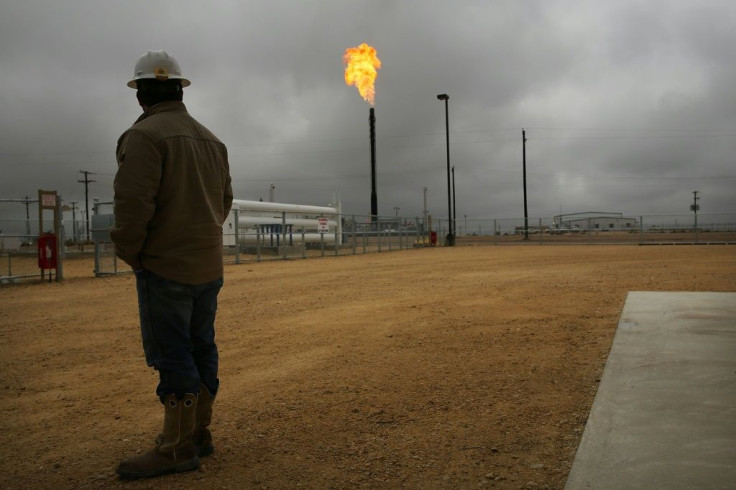Oil Crash Poses Big Test For US Shale Producers

Crashing oil prices are expected to deal a blow to US shale producers, potentially dooming some companies already encumbered with heavy debt levels.
Talk of a major industry shakeout came as oil prices Monday suffered their worst drop in a single trading session since the first Gulf War in 1991.
The catalyst was a move by Saudi Arabia to slash crude prices following the failure to reach agreement with Russia to limit output in response to diminishing demand from the coronavirus, that already had been pushing prices lower.
Moscow refused to cut production and give ground to US shale producers who have emerged as major players in global oil markets over the last decade.
The steep drop in prices adds to pressure on the US shale industry, which was launched by medium-sized and smaller producers, using production techniques like fracking opposed by environmentalists as they engineered a drilling boom in Texas, New Mexico, North Dakota and Pennsylvania.
"The sector will not be completely wiped out, but it is heading into a challenging period, no doubt about that," said Andrew Lebow, an energy expert at Commodity Research Group.
The further prices fall -- they plunged 25 percent Monday to just over $31 a barrel -- the less financially viable a shale operations become.
"If the market is going to be in the low 30s, several companies are facing extinction risk," he added.
Tom Ellacott, analyst at Wood Mackenzie, said producers with heavy debt levels will need to make deep cuts to avoid bankruptcy.
"The price collapse could be the trigger for a new phase of deep industry restructuring -- one that rivals the changes seen in the late-1990s," Ellacott said.
In contrast to 2016, the last period of significant oil price weakness, the demand picture is considerably weaker due to the economic hit from the coronavirus which "depresses global economic growth."

Not all energy companies face the same level of pressure, in general bigger companies are more likely to be able to withstand lower prices because they have easier access to capital.
Oil majors such as Exxon Mobil and Chevron, which have become dominant players in US shale in recent years, slumped badly on Wall Street, falling 12 percent and 15 percent, respectively, in trading Monday.
But the midsized and smaller players were pummeled, including Occidental Petroleum, which plunged 52 percent, and Whiting Petroleum which fell 40 percent.
The shale boom has lifted the United States past Saudi Arabia to become the leading producer in the world, a distinction won through billions of dollars in loans eased by low interest rates.
Now exploration companies in the United States and Canada have an estimated $86 billion in debt maturing between 2020 and 2024, including 62 percent rated "junk" or speculative.
"There surely are some very fevered conversations going on right now between the banks and the producers," Lebow said.
Integrated companies like Exxon Mobil and Chevron have refining operations that benefit from lower oil prices, although that advantage has been lessened in the current downturn because of weak gasoline demand, said a note from CFRA Research analyst Stewart Glickman.
Still, "exploration and production companies are going to be worst-off, since their fortunes wax and wane with crude oil prices," Glickman said.
Analysts at JPMorgan Chase estimate the break-even oil price for shale regions to range from around $45 a barrel in the Midland Basin region in Texas to around $55 a barrel in the Delaware Basin, which extends into New Mexico.
Experts expect production to suffer if prices linger below those break-even points.
© Copyright AFP {{Year}}. All rights reserved.





















